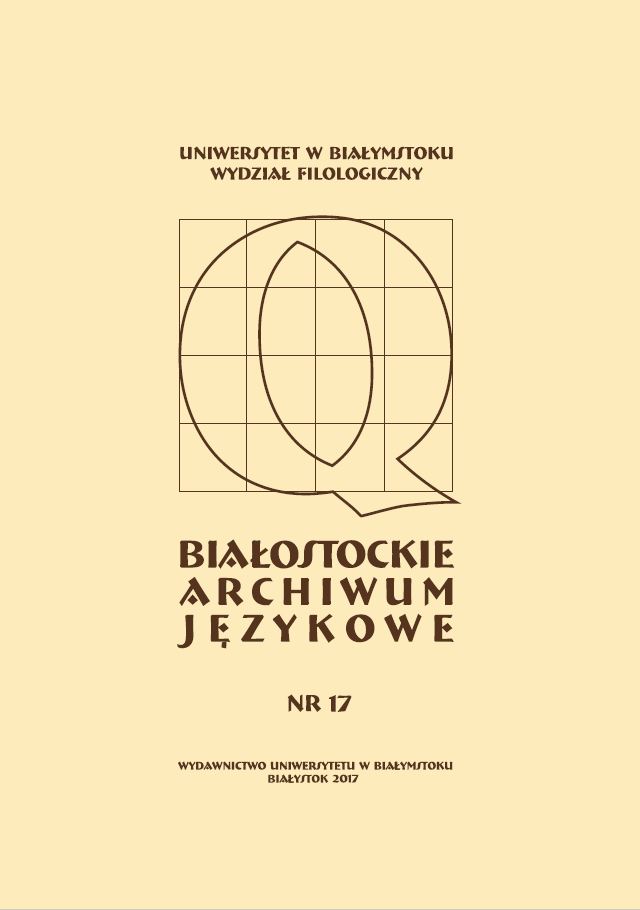Nazwy poranka w dawnej polszczyźnie
The names of dawn in old Polish language
Author(s): Zuzanna KrótkiSubject(s): Language and Literature Studies, Semantics
Published by: Wydawnictwo Uniwersytetu w Białymstoku
Keywords: history of Polish language; semantic; the changes of meaning
Summary/Abstract: In the article the thirty lexical units were analysed and their meaning was – ’dawn’ in the span of time frame; from 15th to 19th century. The material investigated was gathered from all available lexicographical sources registering the bygone vocabulary to the end of 18th century. Stemming from the etymology, the authoress explored the significance of particular wordforms, which were put in the chart at the end with illustration of quantity and volume change in examined lexical field. It turned out that in old Polish the five phases of dawn were extracted which every singular one had at least seven terms. These units were not the constant appellations of concrete phase of the morning time. They evolved constantly semantically or they were weed out from general Polish. Upon the character of these changes the most potent influence was the shifting in customs-the technological progress or better accessability to the chronometers, which influenced as unnecessary the splitting of the dawn into the little segments. As a consequence the special names evaporated.
Journal: Białostockie Archiwum Językowe
- Issue Year: 2017
- Issue No: 17
- Page Range: 107-121
- Page Count: 15
- Language: Polish

